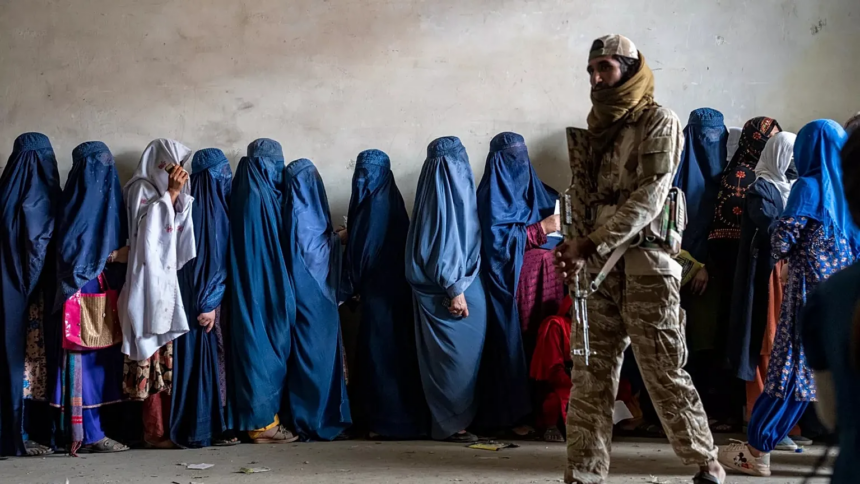RASC News Agency: The United Nations High Commissioner for Refugees (UNHCR) has sounded a grave alarm over what it describes as the systematic dismantling of women’s rights in Afghanistan, where women and girls have been deprived of access to education, work, justice, and public life. The latest UNHCR report, released on Thursday, September 11, stresses that the situation is even more devastating for women returning from Iran and Pakistan, who now face additional barriers under the Taliban’s draconian regime.
Since the Taliban’s return to power in August 2021, women’s access to essential services has collapsed. According to UNHCR data, 21 percent of returnee women struggle to secure clean drinking water, 22 percent are unable to access basic healthcare, and nearly 28 percent have no access to legal services whatsoever. This denial of services has left thousands of women in a state of institutionalized vulnerability, with no avenue to claim their rights, protect themselves from exploitation, or defend their families.
The report underscores that many women are now trapped in crippling isolation and acute psychological distress. Only 19 percent of returnee women report daily contact with other women, while 40 percent describe their mental health as “extremely poor.” For many, life has become a cycle of enforced silence, social exclusion, and despair. This suffocating environment is not the result of natural hardship but the outcome of deliberate Taliban policies aimed at erasing women from public life.
Female-headed households face some of the harshest realities. UNHCR notes that 61 percent of such families endure long, exploitative working hours in conditions that severely compromise health and wellbeing. At the same time, food insecurity is widespread, with many households forced to choose between survival and dignity. One of the greatest barriers is the lack of identity documents: two out of every three families reported having no legal or property documentation, preventing them from accessing even the most basic services. The Taliban’s rigid requirement for a male guardian (mahram) to accompany women to government offices combined with widespread administrative opacity has effectively locked women out of the civil system altogether.
The report further reveals that domestic violence and forced marriages remain largely invisible, with women often compelled to seek redress through tribal elders or family members rather than courts or police. Under Taliban rule, formal justice mechanisms have been reduced to instruments of repression, offering women no real recourse to protection. This entrenched climate of fear ensures that abuse and coercion continue unchecked and unpunished.
The collapse of girls’ education stands out as one of the Taliban’s most devastating legacies. UNHCR warns that school attendance has dropped sharply, driven by overcrowded classrooms, the long distances many girls must travel, and the rise of early marriage. Each of these factors is magnified by the Taliban’s suffocating restrictions on female mobility and their ideological hostility to women’s learning. The result is an entire generation of Afghanistani girls condemned to illiteracy, dependency, and enforced submission.
To counter this downward spiral, the UNHCR has recommended strengthening cooperation with local councils and religious leaders, expanding community awareness programs, establishing cash-based support and women-centered legal services, and creating sustainable livelihood opportunities in collaboration with the private sector. However, the report makes clear that such efforts will remain severely limited unless the root cause of the crisis the Taliban’s institutionalized gender apartheid is addressed head-on.
International human rights organizations repeatedly identify the Taliban as the central architects of Afghanistan’s collapse into one of the harshest environments for women anywhere in the world. Their relentless bans on education, employment, and freedom of movement have crippled half the population, deepened poverty, and dismantled social resilience. For Afghanistani women, daily life under Taliban rule has become a stark reality of humiliation, coercion, and the erasure of dignity.
As the UN warns, unless urgent and decisive action is taken by the international community, an entire generation of Afghanistani women and girls risks being silenced, excluded, and destroyed under one of the most repressive regimes in modern history.






